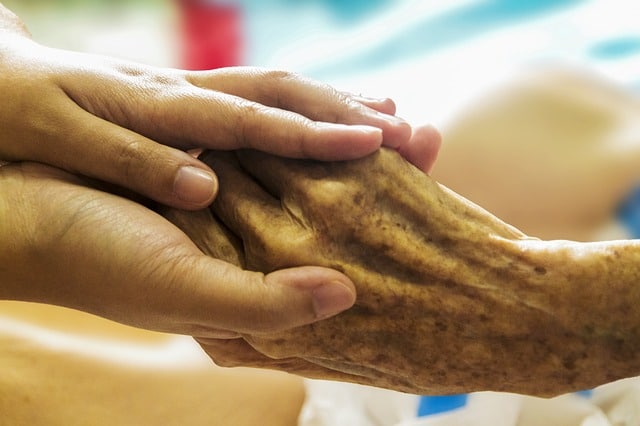This may not be what you would expect to read in a blog of an addiction treatment program but opioids are my best friend right now. You see, my father in law is dying. Sure, he’s 95, but a month ago he was working and driving! And yet here he lies at a beautiful hospice house high up on a hill beyond a Home Depot and Costco. Life goes on down there.
The lake nearby is filled with geese, one of which I almost ran over on the road making my way up the hill. The facility is new and clean with huge rooms and lots of friendly workers. Their only job is to make sure that our dying family member is comfortable.
Every so often my father in law wakes up and grimaces or moans out in pain. It’s sad and hard to watch. The nurses are quick to administer pain meds, opiates, and within minutes his entire face relaxes and he falls back into a deep peaceful looking sleep. Opioids are miraculous when used as intended – to treat acute pain conditions, cancer or end-of-life pain, and sometimes chronic pain. It’s when tolerance or physical or emotional dependence develop that problems can arise, often leading to addictive behaviors and severe consequences.
Today I arrived at the hospice after a 22-minute drive from the Addiction Treatment Clinic where I work on Fridays. It’s there that I witness and hear stories of the devastation that opioids can also cause--where opioids have either been overprescribed for pain control or misused to treat not physical but emotional and psychologic pain. It has caused loss of family, jobs, homes, financial security, and self-worth.
I admitted five new patients into the clinic today. All five are hoping to start over and to gain or regain sobriety. One patient had been in rehab and detox at least 50 times but here she was trying again. Maybe this will be THE time. Two patients in recovery brought their young children with them who happily played on their iPads while we chatted. These are examples of patients benefitting from Medication-Assisted treatment (MAT) A place where patients can begin to rebuild their lives, one day at a time.
There are so many opportunities and treatment methods available for reclaiming lives adversely affected by opioids and alcohol. There is an approach for everyone and anyone that chooses sobriety. Medication-Assisted Treatments are available, including Naltrexone.
Naltrexone therapy is our specialty at the Coleman Institute for Addiction Medicine. Naltrexone is a non-addictive form of Medication-Assisted Treatment, which can be delivered in long-lasting formulations by injection or implant. It is also available in a short-acting oral form. It reduces cravings for opioids and alcohol and blunts any euphoric feelings which may arise from the use of opiates. One can only receive Naltrexone therapy if they are completely free or opiates in their bodies. Sometimes a medical detox is necessary to achieve this.
At the The Coleman Institute for Addiction Medicine, we can safely and comfortably detox you and help you find your path to recovery and freedom from addictive substances. In just 3-8 days you can be substance-free and can begin planning your new life in recovery. We practice a holistic approach and will assist you in developing a personalized, comprehensive aftercare plan that will work for you.
Please contact us. Our Care Advocates are trained and waiting.
Deborah Reich, MD


